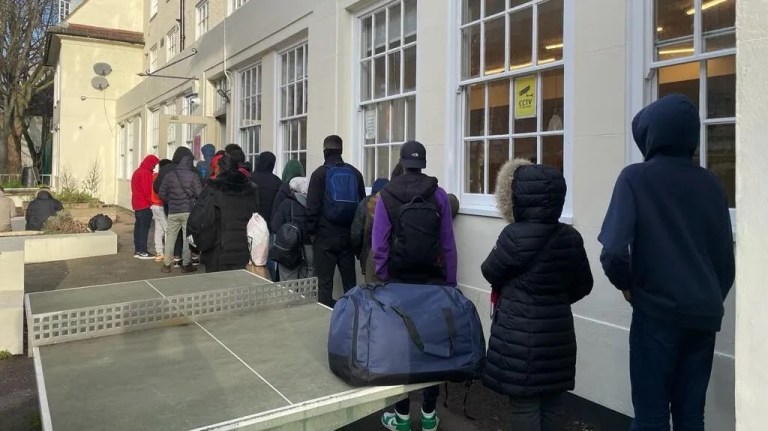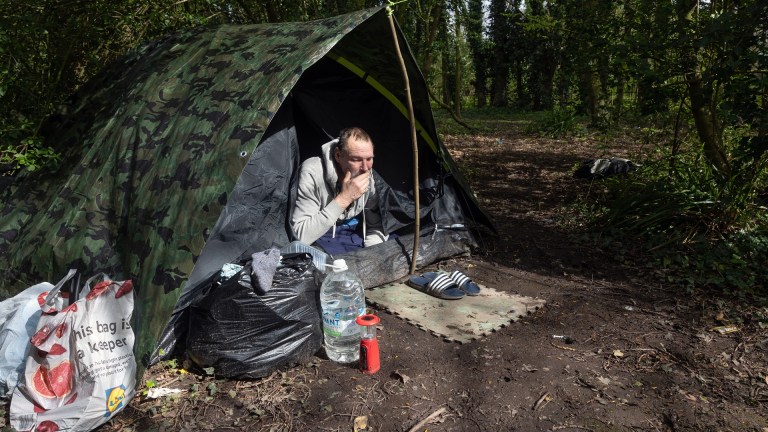Your deposit doesn’t have to be put into a protection scheme if you’re living in student halls or are a lodger. Remember to check the type of tenancy agreement you have is included in deposit protection requirements – a minority aren’t.
In England and Wales, your deposit can be registered with:
Your landlord or letting agent has to place your deposit in the scheme within 30 days of you giving it to them, along with giving you information on how to retrieve it at the end of the tenancy.
Each provider has a custodial scheme, through which the organisation holds onto the money, or an insurance scheme which allows the landlord to keep the money themselves during your tenancy while paying a fee to the organisation.
The process is similar in Scotland, where landlords in Scotland must put your deposit into a scheme within 30 working days of your tenancy starting.
They must then write to you detailing how much you paid as a deposit, when they received it and when they placed it in the tenancy deposit scheme.
Advertising helps fund Big Issue’s mission to end poverty
The landlord should also provide you with written confirmation that they are registered as a landlord with the local council.
Landlords and letting agents can use these schemes in Scotland:
Is my deposit protected?
It’s crucial to confirm that your deposit is in a protection scheme as soon as possible to avoid any nasty surprises at the end of your tenancy.
The simplest way to find out is to ask your landlord or letting agent directly. They should provide you with the necessary information about which scheme your deposit is registered with.
When you pay your deposit, your landlord must provide you with what’s known as the prescribed information. This document includes the details of the protection scheme, how to contact them, and how to reclaim your deposit.
If you’re still unsure, you can directly contact the deposit protection schemes operating where you are. They each have an online service where you can enter your tenancy details to verify whether your deposit is registered with them. If you can’t find your deposit in any of them and you’re in a join tenancy, try searching the name of someone you live with.
Advertising helps fund Big Issue’s mission to end poverty
It’s always a good idea to keep a record of all correspondence and documentation related to your deposit for future reference.
What to do if your landlord hasn’t protected your deposit
If you find out your landlord hasn’t protected your deposit – or your landlord isn’t returning your deposit promptly – don’t panic. You have several options to rectify the situation. The law is on your side, and there are steps you can take to ensure your rights are upheld.
Start by discussing the issue with your landlord. Sometimes, it could be an oversight that they can quickly correct. Ask them to protect your deposit immediately and provide you with the necessary details. It’s a good idea to do this in writing too, so that you have a record of the steps you’ve taken in case you need to take the issue further. Shelter provides templates for letters to your landlord.
If talking to your landlord doesn’t resolve the issue, seek advice from a tenants’ association or a legal aid service. They can provide guidance on your next steps and help you understand your rights.
If your landlord doesn’t protect your deposit, you can take legal action. If the court finds in your favour, your landlord could be ordered to repay the deposit in full and pay compensation of up to three times the deposit amount. But the legal process can cost you money in some cases, as well as being drawn-out and stressful, which is why it’s important to try speaking to your landlord first.
Last year, a landmark court case saw a judge side with tenants against a Hackney landlord who didn’t protect their deposit. What made the case unusual was that the tenants asked for compensation for both the length of their tenancy, during which their deposit wasn’t protected, and further compensation for the time they continued living in the property after the fixed term of the tenancy ended.
Advertising helps fund Big Issue’s mission to end poverty
They wanted the £1,326 deposit back plus the standard damages of three times that – so nearly £4,000 – for both periods of time respectively, meaning compensation of around £10,000. The judge agreed.
This meant the stakes were raised dramatically for landlords and agents who are not complying with the deposit legislation,” said David Smith, property law expert for JMW.
It “will certainly be binding in London and is likely to be followed generally”, he added.
The process for taking this kind of issue to tribunal varies depending on where you are – in England and Wales, you begin by completing and submitting a N208 form and fee. In Scotland, you must apply to the First-Tier Tribunal for Scotland (Housing and Property Chamber). Before beginning any legal action, you should get written confirmation from all relevant deposit protection schemes that your money hasn’t been placed with them.
If your deposit is eventually protected but your landlord wants to make deductions from it when your tenancy ends – and you don’t think it’s reasonable for them to do so – you can use the dispute resolution services offered by the protection schemes. This is a free service designed to solve problems impartially without the need for court action.
Ensuring your deposit is protected by a deposit protection scheme is a vital part of the renting process in the UK. By understanding how these schemes work and acting accordingly, you protect your rights as well as your cash.
Advertising helps fund Big Issue’s mission to end poverty
Do you have a story to tell or opinions to share about this? Get in touch and tell us more. Big Issue exists to give homeless and marginalised people the opportunity to earn an income. To support our work buy a copy of the magazine or get the app from the App Store or Google Play.










